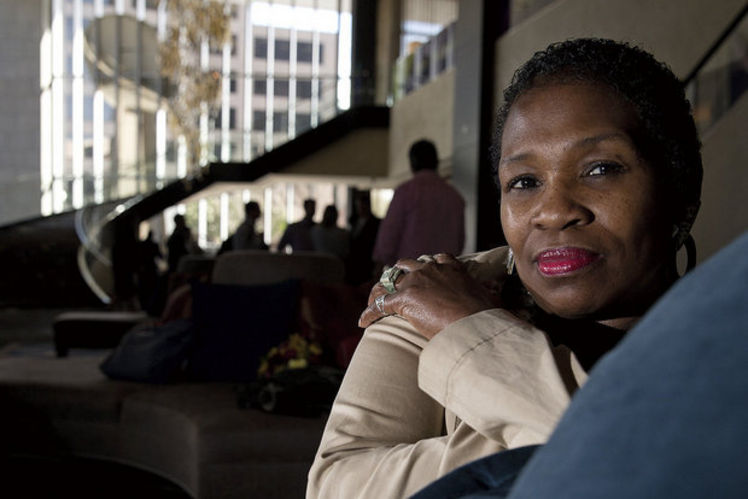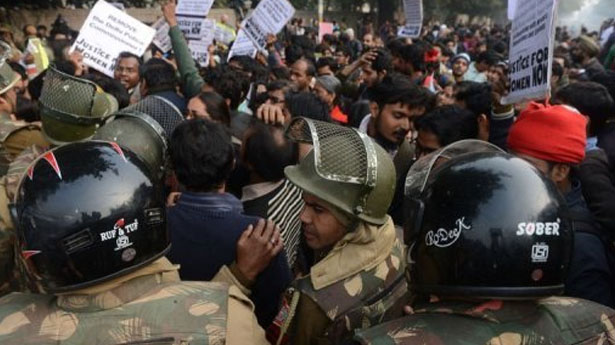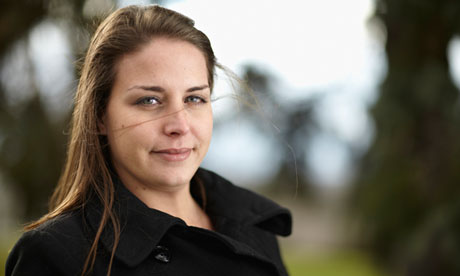(Nola) -Amid the parties and fun of Super Bowl 2013, authorities say, there is a dark underworld of girls and women being forced into the sex trade. Sitting in the festive lobby of a New Orleans hotel, festooned with San Francisco 49ers and Baltimore Ravens decorations, Clemmie Greenlee, a former victim of sex trafficking from Nashville, recalled being brought to cities around the South to prostitute for those attending such large-scale events.
For Greenlee’s pimps, the influx of people provided a massive money-making opportunity.
“When they come to these kinds of events, the first thing you’re told is how many you’re gonna perform a day,” she said Friday. “You’ve got to go through 25 men a day, or you’re going through 50 of them. When they give you that number, you better make that number.”
Having been abducted and gang-raped by her captors at age 12, Greenlee said, she was one of about eight girls controlled by a ring of pimps, men who injected them with heroin and, at times, kept them handcuffed to beds. For trying to run away, she was once stabbed in the back.
Now 53, Greenlee works at Eden House in Uptown New Orleans, the first shelter for sex-trafficking victims in Louisiana; the center opened in October 2012.
“If you don’t make that number (of sex customers), you’re going to dearly, dearly, severely pay for it,” Greenlee said. “I mean with beatings, I mean with over and over rapings. With just straight torture. The worst torture they put on you is when they make you watch the other girl get tortured because of your mistake.”
Sex and Super Bowls
In the past year, authorities in Louisiana have been working to raise awareness about the rampant sex trafficking that has historically accompanied the Super Bowl. While there is a widespread perception that human trafficking is a problem only in foreign countries, data from the U.S. Department of Justice show the average American prostitute begins working between the ages of 12 and 14.
Established in 2006, the Louisiana Human Trafficking Task Force, comprised of federal, state and local law enforcement agencies, plus faith-based and nongovernmental organizations, has been meeting regularly to try to increase trafficking arrests and rescue the victims.
As a tourist destination, New Orleans attracts sex workers year-round, said Bryan Cox, spokesman for the U.S. Department of Homeland Security in New Orleans. But many of those young women are not here by choice. So, in the weeks leading up to the Super Bowl, both outreach and undercover efforts have ramped up.
Those efforts have paid off to some degree already. As of Thursday, at least eight men had been booked with sex trafficking and five female victims had been rescued from their clutches, Cox said, noting that such cases are investigated jointly by the New Orleans Police Department, State Police, the Department of Homeland Security and the FBI, among others.
Two of the women, ages 21 and 24, were brought to Covenant House, a homeless shelter for young people at the edge of the French Quarter, according to executive director James Kelly. After taking a shower and spending the night, however, the women left without accepting the services Kelly and others were trying to offer them.
“We believe they went back to turning tricks,” Kelly said. “We did our best to try to care for them and try to get them to stay, but they were 21 and 24, and there was no way we could force them to stay, and neither could the FBI.”
You’ve got to go through 25 men a day, or you’re going through 50 of them.” — Clemmie Greenlee
Such behavior is common, Greenlee said, noting that she had repeatedly returned to her captors after stays in the hospital or jail, mainly out of fear. She said many times, the women are brainwashed; they believe they have no other options, no future to pursue.
“They’re terrified,” she said. “You can say you’re going to save us, you can say we don’t have to worry about the pimps no more. We already know what power they have shown us. So either you come back to them, or you find out two days later they either got your grandmother or they just broke your little baby’s arm.
“There’s no such thing as we want to go back to these guys,” she said. “We do not feel that no one — not even the law — can protect us, and we do not want to die. I’d rather live in that misery and pain than to die.”
Messages on bars of soap
Aside from police sting operations, advocacy groups and local police agencies have been trying to combat the problem by handing out pamphlets to local hotel concierges, bartenders and club bouncers, asking them to be on the lookout for women who appear fearful and show signs of being controlled by the men they’re with. One of the signs a woman is being trafficked is that she is not allowed to speak for herself, advocates say.
Some groups have been handing out to hotels bars of soap that have a sex trafficking hotline phone number on them, hoping that women who are desperate to escape will see the number on the soap bar and take a chance on a phone call that could save them. Other groups have been providing strip clubs with posters that urge people to call in tips.
For Greenlee, her chance at a turnaround came from a similar help card in Nashville. Having run away from her captors in her 30s, she said, they did not chase after her because she had “aged out.” Living in an abandoned house in Nashville, shooting heroin with other junkies and prostituting herself, she had lost all hope of a normal life.
But one woman, a former sex worker who knew Greenlee and had graduated from Magdalene House, a safe house program in Nashville — the philosophy of which Eden House was based on — visited Greenlee almost weekly. She would leave little cards with the Magdalene House telephone number on them. But having given up, Greenlee shunned the woman and her cards.
After about five months of cards piling up, one day Greenlee woke up and realized she needed to take the chance. She was 42 years old. “I went to the phone and I pulled out some of them 99 pieces of paper that girl had left.
“The one thing I had in my head was, ‘If I learn how to live and heal, I can get back and get those girls. I can go back and tell people what they do to us,'” she said. “I’m not ashamed of what done happened to me. I don’t care if I never get a husband. It just don’t make no sense that we had to go through this.”
“It’s not as easy as saying, ‘Call this number, escape,'” said Kara Van De Carr, executive director of Eden House. “But women who have hit rock bottom and realize they’re going to die in that lifestyle will try anything to get out.”





 PC James Williams, of Bristol, is accused of assaulting a three year old and giving her a sexually transmitted disease
PC James Williams, of Bristol, is accused of assaulting a three year old and giving her a sexually transmitted disease
 James Williams leaving court today. On the first day of evidence at his trial today a jury heard the allegations against the 28-year-old came to light when the little girl complained that she was sore when she went to the toilet
James Williams leaving court today. On the first day of evidence at his trial today a jury heard the allegations against the 28-year-old came to light when the little girl complained that she was sore when she went to the toilet
 The jury heard the girl’s infection was treated with medicine. But then two years later, tests revealed she had the infection again, having had no contact with Williams since the allegations first surfaced
The jury heard the girl’s infection was treated with medicine. But then two years later, tests revealed she had the infection again, having had no contact with Williams since the allegations first surfaced

